![A transport of Jewish prisoners marches through the snow from the Bauschovitz train station to Theresienstadt. [LCID: 69720]](https://encyclopedia.ushmm.org/images/large/781755a6-1ba5-4d8e-8b2b-9f25bdf3687f.jpg)
Browse an alphabetical list of survivors’ oral histories. These interviews describe firsthand accounts and personal experiences during the Holocaust and World War II.
<< Previous | Displaying results 1-25 of 27 for "Oral History" | Next >>
Dallas Peyton of Tucson, Arizona, was a member of the 70th Armored Infantry. In 1945, with other liberating troops, he entered the Dachau camp and encountered survivors and evidence of atrocities.
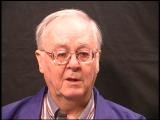
Darrell Romjue is a veteran of the 11th Armored Division. During the invasion of German-held Austria, in May 1945 the 11th Armored (the "Thunderbolt" division) overran two of the largest Nazi concentration camps in the country: Mauthausen and Gusen.
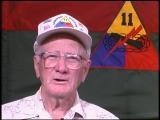
The Germans occupied David's town, previously annexed by Hungary, in 1944. David was deported to Auschwitz and, with his father, transported to Plaszow. David was sent to the Gross-Rosen camp and to Reichenbach. He was then among three of 150 in a cattle car who survived transportation to Dachau. He was liberated after a death march from Innsbruck toward the front line of combat between US and German troops.
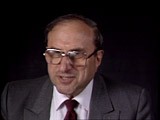
The Germans occupied David's town, previously annexed by Hungary, in 1944. David was deported to Auschwitz and, with his father, transported to Plaszow. David was sent to the Gross-Rosen camp and to Reichenbach. He was then among three of 150 in a cattle car who survived transportation to Dachau. He was liberated after a death march from Innsbruck toward the front line of combat between US and German troops.
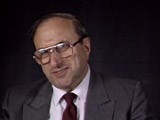
The Germans occupied David's town, previously annexed by Hungary, in 1944. David was deported to Auschwitz and, with his father, transported to Plaszow. David was sent to the Gross-Rosen camp and to Reichenbach. He was then among three of 150 in a cattle car who survived transportation to Dachau. He was liberated after a death march from Innsbruck toward the front line of combat between US and German troops.
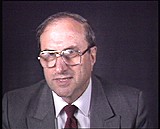
The Germans occupied David's town, previously annexed by Hungary, in 1944. David was deported to Auschwitz and, with his father, transported to Plaszow. David was sent to the Gross-Rosen camp and to Reichenbach. He was then among three of 150 in a cattle car who survived transportation to Dachau. He was liberated after a death march from Innsbruck toward the front line of combat between US and German troops.
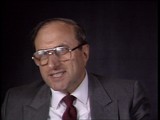
The Germans occupied David's town, previously annexed by Hungary, in 1944. David was deported to Auschwitz and, with his father, transported to Plaszow. David was sent to the Gross-Rosen camp and to Reichenbach. He was then among three of 150 in a cattle car who survived transportation to Dachau. He was liberated after a death march from Innsbruck toward the front line of combat between US and German troops.
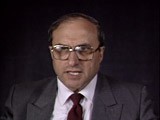
David was born to a middle class Jewish family and attended a Jewish school. In August 1941, after the Germans occupied Kovno, he was forced into the Kovno ghetto, where he shared two rooms with his immediate and extended family. Many members of his extended family were killed during the Great Aktion in Kovno in October 1941. David worked in a forced-labor brigade in the ghetto. In March 1944, he witnessed the Kinder Aktion and was able to save his nephew. During the destruction of the Kovno ghetto, David…
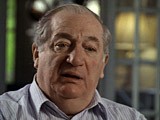
In 1936, David moved to Bucharest to live with his father. As Romania came under German influence, Romanian authorities introduced increasingly harsh measures against Jews. Antisemitic agitation increased and Jews came under attack in the streets of Bucharest and in other public places. David's father decided David should leave the country and arranged passage for him to Palestine. In December 1941, David left Romania from Constanta, a port city on the Black Sea, on the "Struma," an old cattle boat. The…
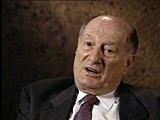
In 1936, David moved to Bucharest to live with his father. As Romania came under German influence, Romanian authorities introduced increasingly harsh measures against Jews. Antisemitic agitation increased and Jews came under attack in the streets of Bucharest and in other public places. David's father decided David should leave the country and arranged passage for him to Palestine. In December 1941, David left Romania from Constanta, a port city on the Black Sea, on the Struma, an old cattle boat. The…
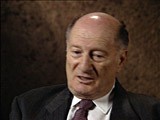
In 1936, David moved to Bucharest to live with his father. As Romania came under German influence, Romanian authorities introduced increasingly harsh measures against Jews. Antisemitic agitation increased and Jews came under attack in the streets of Bucharest and in other public places. David's father decided David should leave the country and arranged passage for him to Palestine. In December 1941, David left Romania from Constanta, a port city on the Black Sea, on the Struma, an old cattle boat. The…
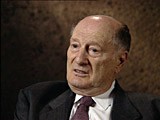
In 1936, David moved to Bucharest to live with his father. As Romania came under German influence, Romanian authorities introduced increasingly harsh measures against Jews. Antisemitic agitation increased and Jews came under attack in the streets of Bucharest and in other public places. David's father decided David should leave the country and arranged passage for him to Palestine. In December 1941, David left Romania from Constanta, a port city on the Black Sea, on the Struma, an old cattle boat. The…
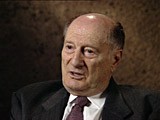
In 1936, David moved to Bucharest to live with his father. As Romania came under German influence, Romanian authorities introduced increasingly harsh measures against Jews. Antisemitic agitation increased and Jews came under attack in the streets of Bucharest and in other public places. David's father decided David should leave the country and arranged passage for him to Palestine. In December 1941, David left Romania from Constanta, a port city on the Black Sea, on the Struma, an old cattle boat. The…
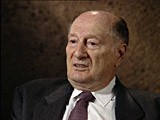
Doriane's Jewish family fled to Amsterdam in 1940, the same year Germany occupied the Netherlands. Her father died after deportation to Auschwitz. After their mother was seized, Doriane and her brother hid with gentiles. The three were reunited at Bergen-Belsen, where they were deported via Westerbork. They were liberated during the camp's 1945 evacuation, when Doriane was 9. Her mother died of cancer soon after Doriane helped her recover from typhus. Doriane and her brother immigrated to the United States.
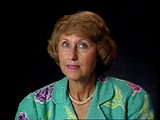
Doriane's Jewish family fled to Amsterdam in 1940, a year that also saw the German occupation of the Netherlands. Her father perished after deportation to Auschwitz. After their mother was seized, Doriane and her brother hid with gentiles. The three were reunited at Bergen-Belsen, where they were deported via Westerbork. They were liberated during the camp's 1945 evacuation. Doriane's mother died of cancer soon after Doriane helped her recover from typhus. Doriane and her brother immigrated to the United…
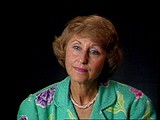
Doriane's Jewish family fled to Amsterdam in 1940, a year that also saw the German occupation of the Netherlands. Her father perished after deportation to Auschwitz. After their mother was seized, Doriane and her brother hid with gentiles. The three were reunited at Bergen-Belsen, where they were deported via Westerbork. They were liberated during the camp's 1945 evacuation. Doriane's mother died of cancer soon after Doriane helped her recover from typhus. Doriane and her brother immigrated to the United…
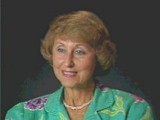
Doriane's Jewish family fled to Amsterdam in 1940, a year that also saw the German occupation of the Netherlands. Her father perished after deportation to Auschwitz. After their mother was seized, Doriane and her brother hid with gentiles. The three were reunited at Bergen-Belsen, where they were deported via Westerbork. They were liberated during the camp's 1945 evacuation. Doriane's mother died of cancer soon after Doriane helped her recover from typhus.
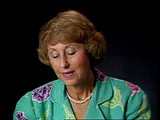
The Germans invaded Poland in 1939 and established a ghetto in Warsaw in 1940. After her parents were deported, Doris hid with her sister and other relatives. Doris's sister and an uncle were killed, and she learned that her parents had been killed. Her grandmother committed suicide. Doris was smuggled out of the ghetto and lived as a non-Jewish maid and cook, but was ultimately deported to the Ravensbrück camp. Upon arrival there, Doris and her friend Pepi contemplated swallowing poison, but decided…
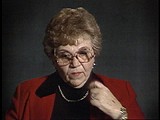
The Germans invaded Poland in 1939 and established a ghetto in Warsaw in 1940. After her parents were deported, Doris hid with her sister and other relatives. Doris's sister and an uncle were killed, and she learned that her parents had been killed. Her grandmother committed suicide. Doris was smuggled out of the ghetto and lived as a non-Jewish maid and cook, but was ultimately deported to the Ravensbrück camp. Upon arrival there, Doris and her friend Pepi contemplated swallowing poison, but decided…
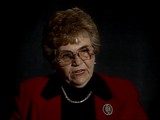
After the Germans invaded Poland in 1939, Dora's family fled to Vilna, Lithuania. When the Germans occupied Vilna, Dora's father was shot and the rest of the family was confined in the Vilna ghetto. Dora, her sister, and her mother were deported to the Kaiserwald camp in Latvia and then to the Stutthof concentration camp near Danzig. Her mother and sister perished in Stutthof. Dora herself was shot immediately before liberation, but she survived.

After the Germans invaded Poland in 1939, Dora's family fled to Vilna, Lithuania. When the Germans occupied Vilna, Dora's father was shot and the rest of the family was confined in the Vilna ghetto. Dora, her sister, and her mother were deported to the Kaiserwald camp in Latvia and then to the Stutthof concentration camp near Danzig. Her mother and sister perished in Stutthof. Dora herself was shot immediately before liberation, but she survived.
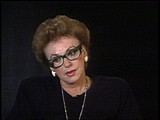
Drexel Sprecher was educated at the University of Wisconsin, the London School of Economics, and at the Harvard School of Law before receiving a position at the US Government's Labor Board in 1938. He enlisted in the American military after the United States declared war on Germany, and was posted to London. After the war, Sprecher served as a prosecutor of Nazi war criminals at the Nuremberg trials.
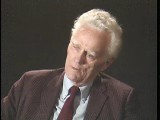
Drexel Sprecher was educated at the University of Wisconsin, the London School of Economics, and at the Harvard School of Law before receiving a position at the US Government's Labor Board in 1938. He enlisted in the American military after the United States declared war on Germany, and was posted to London. After the war, Sprecher served as a prosecutor of Nazi war criminals at the Nuremberg trials.
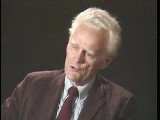
Drexel Sprecher was educated at the University of Wisconsin, the London School of Economics, and at the Harvard School of Law before receiving a position at the US Government's Labor Board in 1938. He enlisted in the American military after the United States declared war on Germany, and was posted to London. After the war, Sprecher served as a prosecutor of Nazi war criminals at the Nuremberg trials.
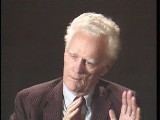
Drexel Sprecher was educated at the University of Wisconsin, the London School of Economics, and at the Harvard School of Law before receiving a position at the US Government's Labor Board in 1938. He enlisted in the American military after the United States declared war on Germany, and was posted to London. After the war, Sprecher served as a prosecutor of Nazi war criminals at the Nuremberg trials.
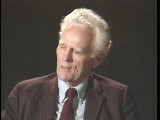
We would like to thank Crown Family Philanthropies, Abe and Ida Cooper Foundation, the Claims Conference, EVZ, and BMF for supporting the ongoing work to create content and resources for the Holocaust Encyclopedia. View the list of donor acknowledgement.